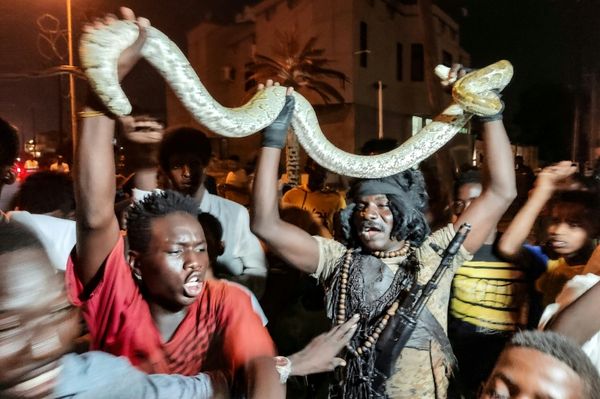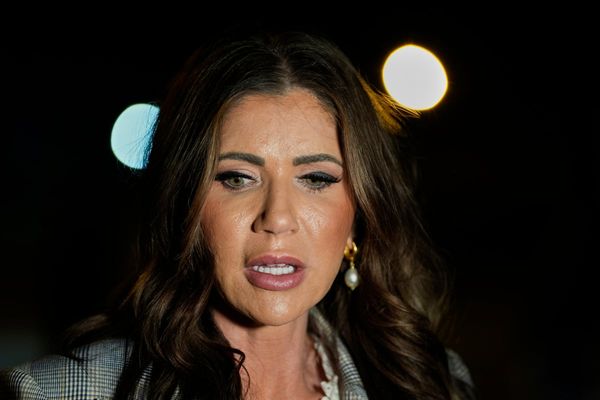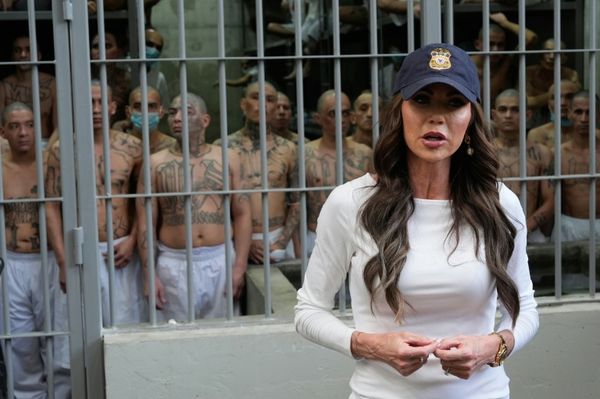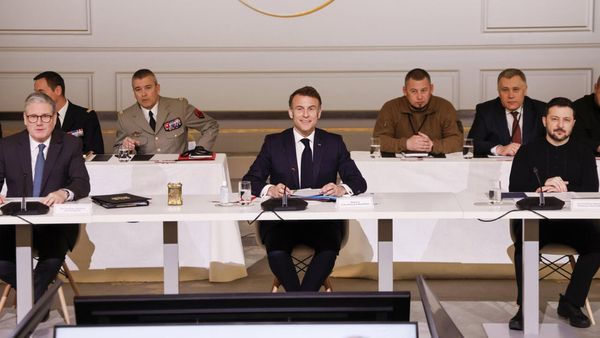
Opprobrium for the massive over-exposure of sports betting advertisements in mainstream media tends to be directed at gambling companies, but the blame for what will almost certainly be a new wave of restrictions — perhaps even an outright ban — falls on our biggest media companies.
The Labor-controlled standing committee on social policy and legal affairs’ report on online gambling — initiated by Social Services Minister Amanda Rishworth — calls for, among other recommendations, a three-year phase-in of a full ban on all advertising for online gambling. It’s a unanimous report because the Coalition, unusually under leader Peter Dutton, has deftly jumped ahead of Labor and called for a ban. The only quibbling is why wait three years.
Dutton’s proposed ban attracted support from voters, with 70% in favour of a ban on betting advertising for an hour each side of televised sport, according to polling — unsurprising given the intense loathing that gambling ads elicit from TV viewers.
Big media companies have only themselves to blame for engineering such community animosity, having become addicted to revenue from gambling advertising, which is estimated at $300 million a year. Front and centre are the commercial free-to-air networks, via one of the country’s most rapacious lobby groups, FreeTV, which insisted in a submission to the inquiry that there were no problems with the level of gambling ads or how children were exposed to them.
According to FreeTV, commercial television is a vast economic boon to Australia worth hundreds of billions of dollars, and any further restriction on gambling advertising would hamper its ability to “create jobs, provide trusted local news, tell Australian stories, give Australians a voice and nurture Australian talent”.
Should any ban or further restriction go ahead, watch for FreeTV to ramp up this stuff and demand further cuts in spectrum fees.
FreeTV’s radio mini-me, Commercial Radio Australia, parroted similar nonsense, claiming it “produces and broadcasts an enormous amount of high-quality local content that is transmitted daily by Australian commercial radio stations. This content spans a range of formats, including local and national news, talk, sport, entertainment and music. The unparalleled volume of local and national news provided by the commercial radio industry is vital to the democratic process in Australia.” Who knew Australian journalism was dependent on all those gambling ads?
A disturbing addition to the inevitable carping from commercial broadcasters came from SBS, which joined the commercial networks in insisting there was no problem with the regulation of gambling advertising (plus the additional restrictions that SBS carefully noted it had placed on itself). SBS had only a “low level of complaint” about its gambling ads.
The only major media company publicly absent from the inquiry process was News Corp. The Murdochs have a stake in the debate not just via advertising revenue but through its $49 million investment in online gambling company Betr — reflecting the company’s foray into the US gambling market via Fox Bet.
But ever since Betr’s high-profile 100-1 odds launch during last year’s Melbourne Cup, there’s been a steady stream of bad news: two News Corp directors left the board; the company was fined for the 100-1 promotion; it missed out on crucial acquisitions; founder Matthew Tripp had to deny the outfit was about to fold. It’s been up for sale for the past two months.
News Corp may have sniffed the regulatory wind and avoided hooking itself to a revenue stream loaded with serious moral problems (normally not an impediment at the company, admittedly), community hatred and high and growing levels of regulation.
That leaves most of the rest of Australia’s major media companies implacably opposed to the public interest and strong community sentiment, one the direct result of their lack of judgment about how much offensive, in-your-face gambling advertising was enough.
The debate that the inquiry report occasions will be a significant test of whether the major TV and radio broadcasters can put the public interest ahead of their own revenues — something none of them has been noteworthy for doing for most of the past century in Australia.
The other test is for Labor. NSW Labor is soft on gambling, whatever the theatre of Premier Chris Minns’ ban on “VIP Lounge” signs. The Minns government has delayed both its much-vaunted and useless “trial” of cashless pokies, and stopped former treasurer Matt Kean’s tax on the despicable Star Casino on the basis that there hadn’t been “consultation” (gambling companies get to be consulted on how much tax they pay, when the rest of us just have to stump up).
Has the NSW disease infected federal Labor? In 2021-22, the federal branch collected more than $700,000 in donations from gambling companies, including a whopping $110,000 from Sportsbet. Plus there was the $67,000 in pocket change from the TV networks.
Let’s see if that was money well spent by gambling and media interests, or if they all turn out to be mug punters.
Do you want sports gambling ads banned immediately or are you OK with a three-year phase-out? Let us know by writing to letters@crikey.com.au. Please include your full name to be considered for publication. We reserve the right to edit for length and clarity.







